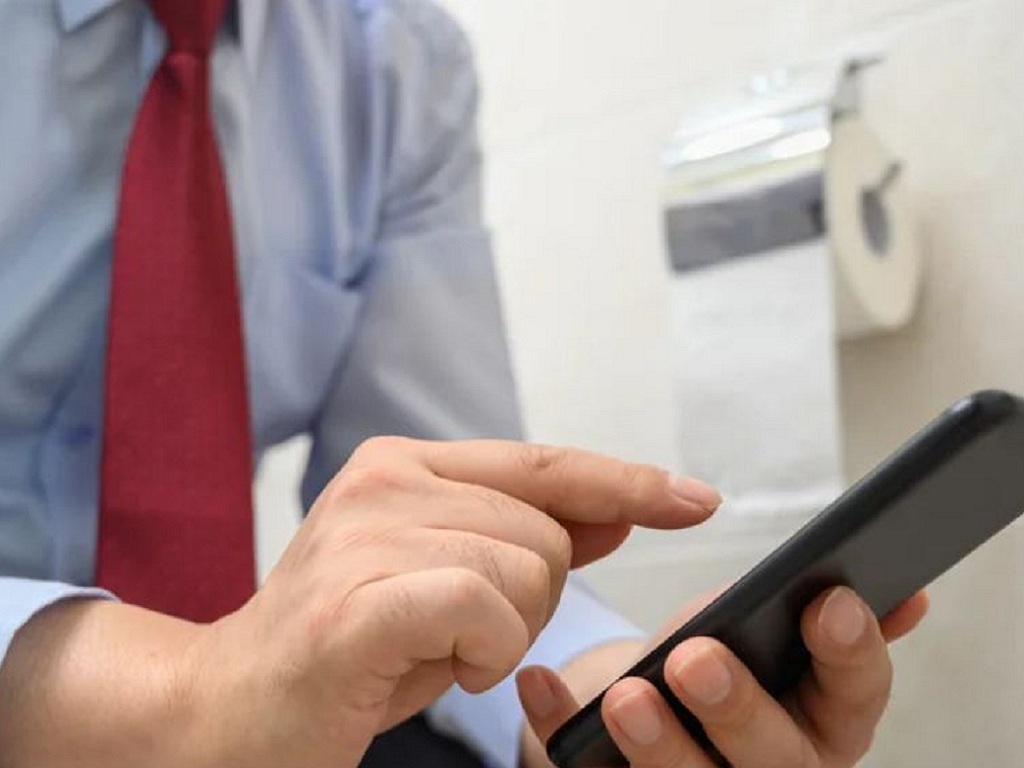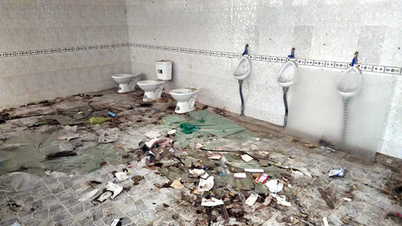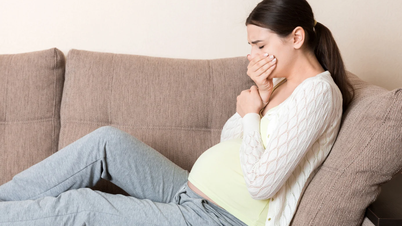Using the phone in the toilet for a long time will increase the risk of hemorrhoids. Hemorrhoids are a condition in which the veins in the anus or rectum become swollen. The location of the swollen veins can be inside or outside around the anus, according to the health website Healthline (USA).

Using the phone too long in the toilet will increase the risk of hemorrhoids.
In fact, many of us have varicose veins around the anus or rectum. So technically, these cases are hemorrhoids. However, many people do not know because their health is fine and not affected.
Statistics in the US show that about 1 in 20 people in the US have uncomfortable symptoms related to hemorrhoids. These symptoms include itching, anal pain, rectal bleeding or the formation of hard or soft lumps around the anus.
One question that arises is why the habit of using smartphones while going to the toilet leads to an increased risk of hemorrhoids. According to experts, the toilet seat is shaped like a ring. Therefore, sitting on this seat will cause the rectum and anus to be compressed and put pressure on the veins around the anus.
Using your phone while on the toilet will make you sit on the toilet longer. The longer you sit, the more pressure is put on the anal veins, increasing the risk of hemorrhoids. Not only that, this sitting position will cause blood to accumulate around the anus and rectum, making hemorrhoids more likely to develop.
To reduce the risk of hemorrhoids, people need to control the time of defecation. In other words, we should limit sitting on the toilet to no more than 15 minutes. According to experts, the optimal time is about 10 minutes.
Another reason not to bring your phone to the bathroom is the risk of bacteria sticking to your phone. Just one flush in the toilet can cause fecal matter and bacteria in the toilet to spread into the air, stick to the sink, faucet, and many other things around, including your phone. Moreover, if you do not wash your hands properly after using the toilet, your phone will also become a place where bacteria accumulates.
For those who suspect that their anal discomfort is due to hemorrhoids, the Cleveland Clinic, a non-profit medical center in the US, recommends a number of ways to improve the situation. Specifically, patients should drink more water, eat more fiber, use laxatives to make bowel movements easier, and take a warm bath for up to 20 minutes a day.
People with hemorrhoids can also apply lidocaine or hydrocortisone cream to the affected area. Over-the-counter nonsteroidal anti-inflammatory drugs can also help relieve anal discomfort. If symptoms do not improve after a week, see your doctor, according to Healthline .
Source link




































































































Comment (0)